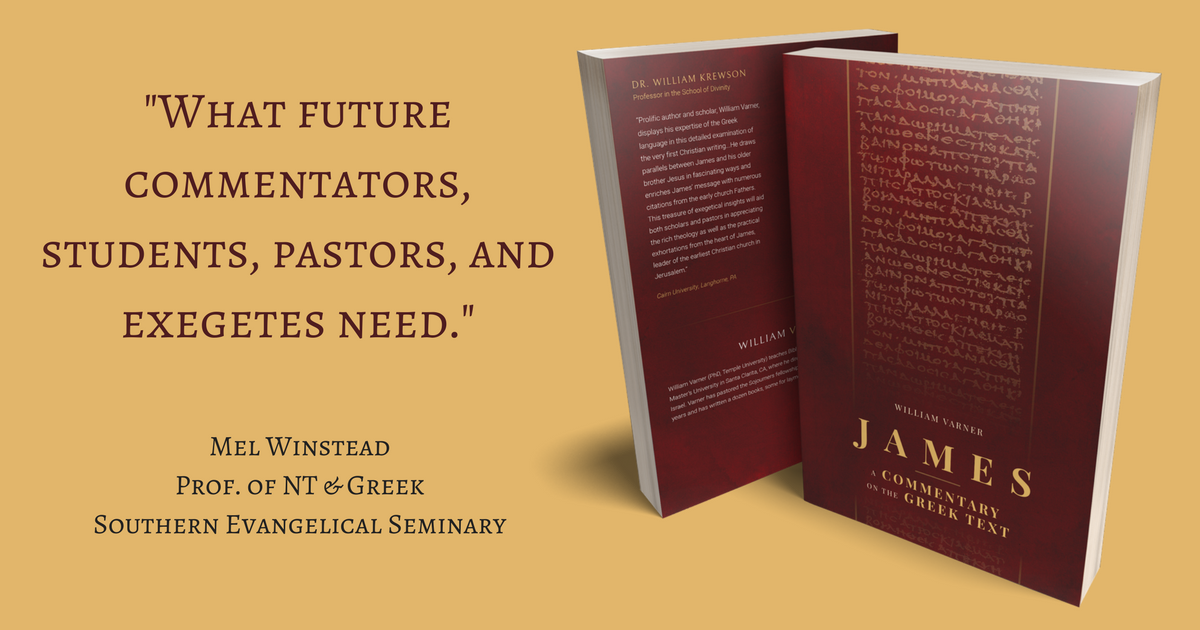
This post has been adapted from James: A Commentary on the Greek Text, by William Varner (Fontes Press, 2017).
“Who among you is wise and understanding? By his good conduct he should show that his deeds are done with the gentleness that comes from wisdom… the wisdom from above is first pure, then peace-loving, gentle, compliant, full of mercy and good fruits, unwavering, without pretense. And the fruit of righteousness is sown in peace by those who make for peace” (James 3:13, 17-18).
Apart from the disputed reference to τὸ πνεῦμα in 4:5, James has no explicit reference to the Holy Spirit. For those who affirm the scriptural inspiration and authority of the book, this absence has prompted some to suggest that, for James, his oft-mentioned theme of “wisdom” functions as the Holy Spirit does in other NT writings. A simple comparison of the characteristics of the wisdom “from above” in 3:17–18 with the Pauline “fruit of the spirit” in Gal 5:22–23 illustrates clearly this possible identity of wisdom with the Spirit. J.A. Kirk cites not only the above description of wisdom in 3:17–18, but also other references where the language that James uses about the gift of wisdom (1:5–8) is paralleled by references to the gift of the Spirit in Paul (1 Cor 1:18–31; Eph 1:17; Rom 8:9–11, 14–15; Col 1:28).*
He then traces references to God’s Spirit and wisdom in the OT and in Second Temple period literature, including the writings from Qumran. He concludes that there are a limited but significant number of passages in which wisdom and Spirit are directly identified, or have the same functions, and that wisdom is the supreme gift of the Holy Spirit. In the end, the internal evidence of the epistle itself is the strongest. There is the clearly ethical role given to wisdom (3:13–18) plus the fact that wisdom is a moral force to help the indwelt believer overcome testing and temptation (1:5–8)—ministries that are all related to the Spirit elsewhere in the New Testament.
If these comparisons are valid, then we do not have a writing that omits the Third Person of the Trinity, and James may simply have not used the express terminology that later theologians utilized with reference to the divine Spirit.
*J. A. Kirk, “The Meaning of Wisdom in James: Examination of a Hypothesis,” NTS 16 (1969–70) 24–38. Some other recent commentators are also positive toward Kirk’s suggestion (see, e.g., Davids, 55–56, 71–72; Blomberg-Kamell, 178–79).
For more, check out the author’s James: A Commentary on the Greek Text.


